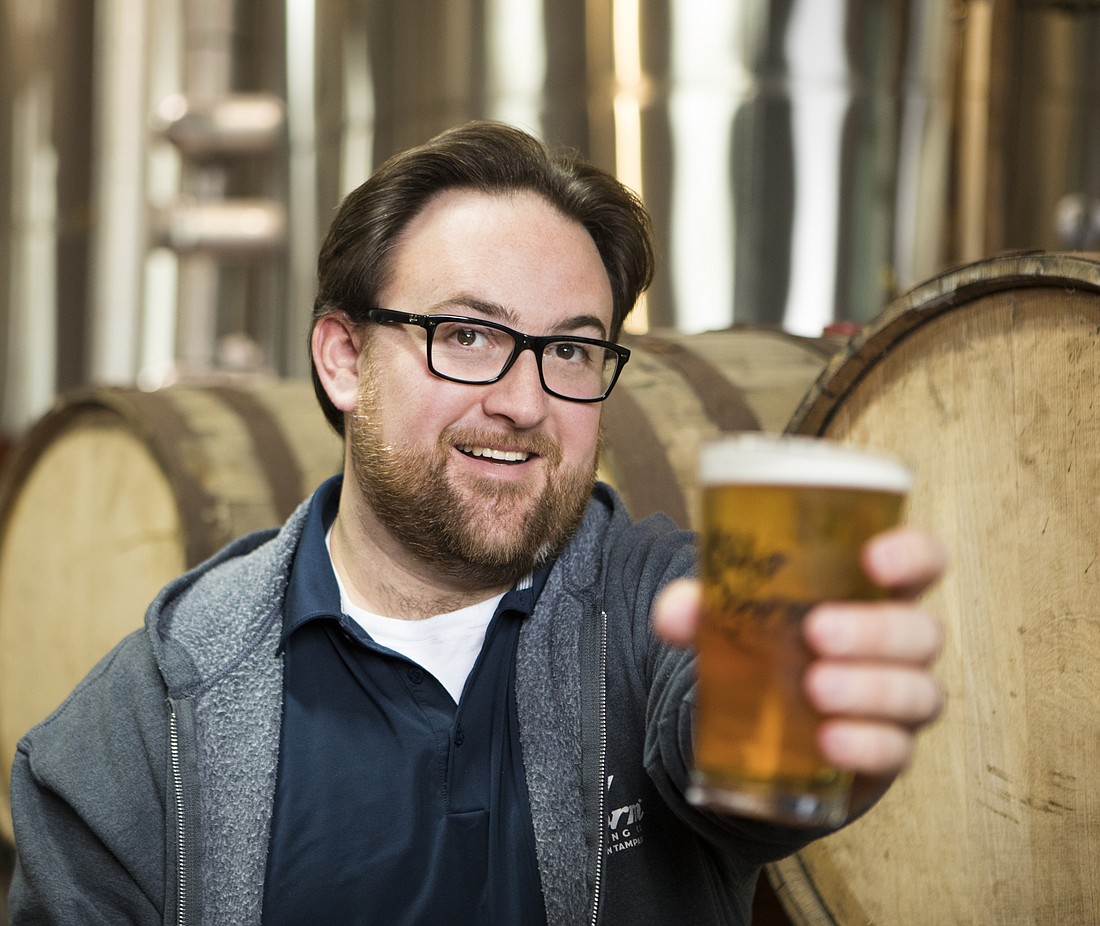- July 26, 2024
-
-
Loading

Loading

Will Chileans drink American craft beer made some 4,300 miles away from their South American homes?
A Tampa Bay area brewery is about to find out.
Big Storm Brewery, an independent craft brewery with operations in Pasco and Pinellas counties, plus Cape Coral in Lee County, was one of eight local companies to take part in a trade mission to Santiago, the capital of Chile, in October to secure export sales deals. Founded in 2012, Big Storm Brewery uses local ingredients, like citrus and wildflower honey, to brew more than 20 different beers, available in Publix, Whole Foods and other stores.
Global Tampa Bay, formerly known as the Tampa Bay Export Alliance, organized the trip. Officials there say it generated approximately $3.35 million in projected sales and economic activity.
Some $200,000-$250,000 of that can be attributed to the success of Big Storm, says brewery founder Mike Bishop. “It was eye-opening for me,” says Bishop, 34. “I had to learn a whole lot, real quick, but the Gold Key program was huge.”
“It was a whirlwind — meeting after meeting after meeting. I was exhausted afterward!” Mike Bishop, founder of Big Storm Brewery
The Gold Key Service Matchmaker is a program offered by the U.S. Commercial Service. It facilitates face-to-face meetings between U.S. exporters and importers in countries like Chile who want to bring in American goods. The program cost Bishop $1,500, but he obtained a grant from the Pasco Economic Development Council to cover that fee, leaving him to pay for travel and lodging out of his pocket.
“I have some friends in other industries who’d gone through the Gold Key program," Bishop says, "and they raved about it."
Before the trip, Bishop took part in a conference call with officials from Enterprise Florida, another organization that helped facilitate the trade mission. Officials there worked with Bishop on an export sales strategy that would give him the greatest odds of success — and profit.
“I could have said, ‘Hey, I want to hit the top 20 bars in Chile because our beer does really well in bars,’” he says. But in talking with Enterprise Florida, Bishop was informed his best bet would be to form a relationship with a knowledgeable, reliable importer who could get Big Storm beer into the nation’s grocery stores.
Armed with that insider information, the U.S. Commercial Service came through for Big Storm.
“They went out and set up some fantastic meetings,” Bishop says. “They set me up with three or four different grocery chains that represent 80% of the grocery market in the country. It was a whirlwind — meeting after meeting after meeting. I was exhausted afterward.”
Because Bishop’s product falls under the purview of the U.S. Foreign Agricultural Service, there are some hoops to jump through before Chilean craft beer fans can get their hands on Big Storm hops (and beer.) “Alcohol is a little tricky; it’s regulated in different ways,” he says. The Chilean government, it turns out, “is big on labeling for certain nutrition facts, like fat calories, sugar and sodium. They’ll put a big black ‘STOP’ sign on a product that’s like, ‘Hold on, this has more sugar than you should consume.’ I don’t want to call it government intrusion — more like the government educating people.”
Alcohol, in particular, is also subject to a 30-day testing period before exports can commence, and that’s the stage Bishop finds himself in at the moment. He’s shipped samples to Chile, and has received word from his importer that a grocery store placement has been secured, pending government approval.
“I don’t know exactly when the clock starts, but as soon as we get through this process, I should have a container going down there,” Bishop says, adding he hopes to have beer for sale in Chile in the first quarter of 2019. A second and possibly third container will likely follow later in the year, depending on demand. Bishop and his import partner are still working on a price point for the beer. “It’s going to be a premium product,” he says, “but we don’t want to get in a situation where we’re double the cost of everything else.”
Would-be exporters also need to be aware of a crucial set of guidelines known as Incoterms, Bishop says. Set forth by the International Chamber of Commerce, Incoterms spell out the obligations of each party involved in an import-export relationship.
Exporting “takes some legwork,” Bishop says, “but I would recommend that people don’t get overwhelmed by it … just take it one step at a time and focus on trying to find an importer who wants to work with you, adds value to your product and can sell your product the way you want it to be sold.”